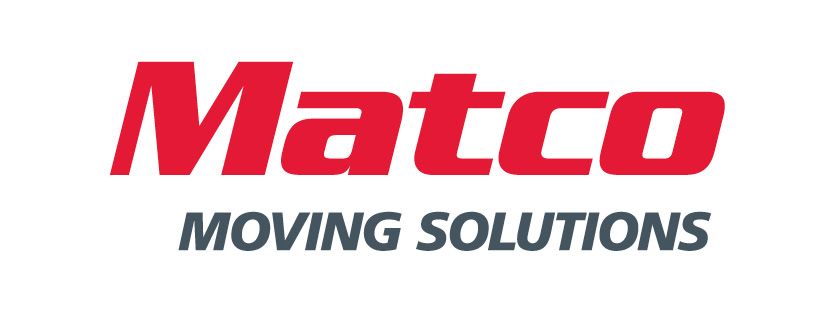Picture this: you’re getting excited to book your moving services in Alberta, and start the journey to a new home – but all of a sudden you start hearing terms like “Bill of lading” and “C.O.D.” and you’re lost. Worry not! This blog is dedicated to teaching you all the terms and sayings you need to know when booking your next move. Your Alberta movers will be super impressed with your industry knowledge, and we’ll keep it our little secret!
The A-Z Moving Terminology List
Agent: A local moving company that is authorized to act on behalf of a bigger, national moving company.
Appliance Service: The cost to disconnect and reconnect appliances at the beginning and final destination. These services are usually performed by a third party, so sometimes the moving company may charge a surcharge.
Additional Pickup/Delivery: An additional charge when you have more than one pick-up and/or delivery location.
Bill of Lading: The contract between the mover and you (the customer), it also acts as a receipt. Since this is a binding contract, make sure you understand it before you sign it.
Binding Estimate: Typically when you are quoted a flat price based on the inventory, and you are charged that price no matter what.
Booking Agent: The carrier that is responsible for registering and booking your move, whether or not they are located at the origin or destination. They will handle the financial transaction for the move.
Carrier: This is the moving company that you’re employing.
Certified Scale: A scale designed for weighing motor and commercial vehicles, that is also certified by the appropriate licensing authority.
C.O.D. (Cash On Delivery): This means that payment is required upon delivery, and cash, card, or cheque is typically accepted.
Crating: The process of placing certain delicate or oddly shaped items in custom wooden crates to keep them safe during transit.
CWT (Per-Hundredweight): The cost rate per 100lbs.
Flight (Stair) Charge: An additional charge is applied when there are stairs at the origin, destination, or both.
High Value Item: Any Item (or possibly a matching pair) that is worth over CAD $5,000. There are special procedures that must be followed for high-value items to account for their value.
Hourly Rate: You are charged by the hour, per truck, and the amount of labour may vary based on the rate.
Household Goods (HHG): Exactly what it sounds like, these are all the goods that you move when moving to a new house. A moving company may classify a move as HHG or commercial, depending on its purpose.
Inventory: The detailed list of all the items being transported during a move, right down to the number and size of boxes.
Linehaul Charges: The basic method to bill a long distance move, based on mileage and the weight of your shipment. This typically doesn’t include additional charges.
Local Move: A short-distance move, typically across a city or within the neighbouring area. Anything over 160KM in distance is getting into the long distance category. These moves are typically based on an hourly rate.
Non-Binding Estimate: These estimates are based on the moving consultants’ industry knowledge, and they are subject to change (either down or up, depending on the circumstances).
Packing Service: The option provided by full service moving companies to fully pack all your possessions before the move.
PBO (Packed By Owner): Any boxes packed by the owner, and not the moving services company.
Peak Season: The busiest time of the year for moving services. A premium rate will probably be charged during this period, typically the summer months.
Released Rate Protection: With this option, the Carrier’s maximum liability is $0.60 per pound, per article in the event of loss or damages. The value of the article has no effect.
Replacement Value Protection (RVP): The Carrier’s maximum liability is the lump-sum value declared on the shipment (this maximum would only be paid in the case of a total loss).
Scale Ticket: An official document detailing the weight of a shipment.
Short Haul: A move that is longer than local, but not quite long distance, defined by each individual company.
Shuttle: Indicates an additional charge when the full-size moving vehicle cannot access either the pickup or delivery location. Your goods must be transferred between the smaller “shuttle” and larger moving truck.
Storage In Transit (SIT): The temporary storage of your goods, up to a specified number of days, pending the further transportation or delivery of your goods.
Tare Weight (Light Weight): The weight of a moving truck and all the essential materials and supplies before your goods are loaded.
Tariff: The moving companies price list based on rules, regulations, and rates for long distance moves. Different circumstances will have different tariffs applied.
Transit Time: The time between when your goods are loaded and when they are delivered to the destination.
Van Line: A carrier that coordinates long-distance moves with the help of local agents at the origin and destinations.
Warehouse Handling Charges: A charge applicable each time your items are moved into or out of storage that compensates the movers for the labour required in the process.
Looking For Expert Moving Services in Alberta?
Matco Moving Solutions can help you with your local, long-distance or international move. We are a full-service moving company that is dedicated to delivering a stress-free and positive moving experience. We have locations in Calgary, Edmonton, Yellowknife, Whitehorse and Inuvik and over 55 years of moving experience and expertise.
Contact us today for a free moving quote and to learn how Matco can help you with your next move.


